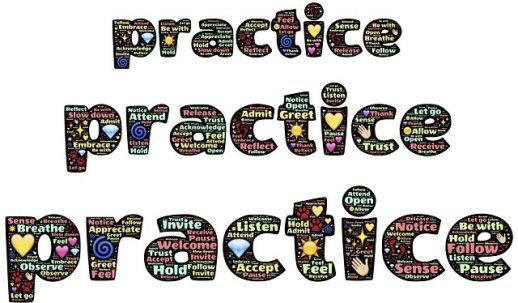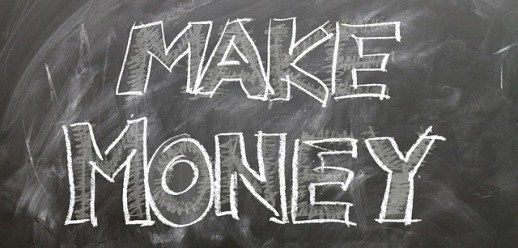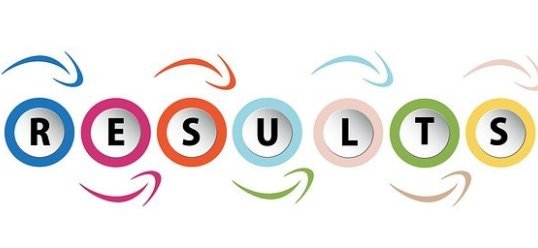Financial Habits You Can’t Afford To Ignore
In life, you can choose to practice good money habits or bad money habits.
I’m far from perfect when it comes to money. But for me, it’s an easy choice to make.
I choose to practice good money habits whenever possible. So today, we will explore the good financial habits of the wealthy that you can’t afford to ignore.
To kick this off, here is a summary list of money habit examples for your consideration…

Examples Of Good Money Habits
- Have a long-term perspective
- Maintain a positive attitude
- Put in the extra effort
- Invest in yourself
- Set financial goals
- Create & maintain a budget
- Stick to your budget
- Track your spending
- Live below your means
- Plan purchases & avoid impulse buys
- Plan your meals
- Practice moderation
- Pay yourself first
- Avoid credit card debt
- Pay bills on time: automate it
- Make extra money
- Save bonus and gift money
- Plan for every extra dollar
- Track your progress
- Reward yourself
- Be grateful for what you have
Before we dig into each of these best money habits, I want to make sure we are clear on today’s topic.
Disclosure: At no cost to you, I may get commissions for purchases made through links in this post.
What Is A Money Habit?
First, a money habit is a behavior related to your finances that is performed regularly.
Furthermore, a financial habit is subconscious or routine. And repeated over an extended period.
Finally, a money habit is a way of thinking, feeling, or doing something related to your finances acquired through previous experience.
Money Habits Vs. Financial Goals
Having better money habits should not be confused with the various types of financial goals. Because a goal is a desired outcome that a person envisions, plans, and commits to achieve.
Put another way, good financial habits will help you achieve your financial goals. Furthermore, money habits are universal and apply to almost all of us. At the same time, financial goals are more specific to an individual.
In other words, I can tell you about the best money habits. But since I don’t know you, I can’t participate in developing and setting your financial goals. Let me give you an example to explain better.
A Money Habit Versus A Financial Goal: Example
A good money habit is to live below your means. In other words, spend less than you make. This habit applies to everyone. It is one of many great ways to build your wealth.
By living within one’s means and saving money, an individual may set a financial goal to establish a cash emergency fund of $500. This is the desired outcome that can be measured. It is a financial goal.
But a $500 emergency fund may be perfectly adequate for Joe. On the other hand, Jane needs a $10,000 emergency fund.
So, as I said, good money habits are universal. They apply to all of us.
Financial goals are person-specific. Because we are all different and we all have different goals.
How Can You Improve Your Money Habits?

So, you want to have better money habits? Here’s how to go about changing your behavior towards money.
First of all, be mindful of your money. Furthermore, awareness is a key component for creating good money habits. Finally, know the good money habits that are worth pursuing. Then practice, practice, practice.
Depending on what behavioral expert you read, it can take several days or months to make a behavior a habit.
To help you out, let’s dive into the details of my recommended smart money habits. Then, you can add some or all of them into your money routine right away.
Then, practice them regularly. To achieve your financial goals.
Now, let’s go through in more detail the 21 good money habits to better your finances.
First, pin this to your favorite Pinterest board if you want to return later!

1. Have A Long Term Perspective
Think long-term. And avoid short-sighted decisions.
When it comes to your current job, your career, where you live, and the people you surround yourself with, think long-term.
This quote by novelist Robert Louis Stevenson sums it up well:
“Don’t judge each day by the harvest you reap but judge it by the seeds that you plant.”
How do we plant those seeds today so we can enjoy the future? We do it through the financial habits we form and the actions we take each day.
2. Maintain A Positive Attitude
Have a positive outlook. Look at the bright side of things. Don’t dwell on the negative. Practice positive self-talk using affirmations on money.
What is positive self-talk? Positive self-talk seeks to bring the positive out of the negative to help you do better, go further, or just keep moving forward.
So look for the positive in every situation. And repeat it to yourself over and over. This will make positive thinking a habit. And I believe that positive thinking is a good money habit.
By being positive, you will attract better people to associate with. And these people will likely have good money-making habits. And they will help you on your journey to achieve your financial goals.
3. Put In The Extra Effort
Having a strong work ethic is a good financial habit to develop. We are not talking about having luck with money here. We are talking about good old-fashioned hard work.
Here are a few of the best money habits of the rich when it comes to working…
Making Money Habits: Get Up Early
Getting up early is a good money habit. Usually, before 6 am.
It’s easy for me to say. I’ve always been a morning person. That’s when my thoughts are the clearest. And I can set my priorities for the day before the normal daily distractions arise.
In my corporate working days, I liked to get to the office by 7 am. Early arrival accomplished three things.
- I avoided wasting time in the rush hour traffic
- The office was quiet, and I could plan my day
- I could start my day by accomplishing one thing
Accomplishing one task early in the day sets the tone for a productive day.
Making Money Habits: Work Hard & Hustle
If having good financial habits were easy, everyone would have them. So set yourself apart. Working hard is a great money habit.
I’m sorry to tell you that long workdays and workweeks may be required to accomplish your financial goals. The reference to working 24/7 is an unfortunate reality.
We are always connected. Connected to work, clients, associates, and employees through our smartphones and computers.
Making Money Habits: Work Smart

Now, I must add that it’s not just about working hard. Working smart is a money-making habit.
Be productive. Concentrate and do deep work. Avoid unnecessary distractions.
Making Money Habits: Take Action
Nothing will happen unless you make it happen. So take action. Procrastination is a bad financial habit. While taking action is a healthy money habit.
Making Money Habits: Put Yourself “Out There”
We all, to some degree, fear failure and rejection. But you can’t insulate yourself from those things. Failure and rejection come with taking calculated risks.
Don’t fear failure. Embrace it. I like this saying, “When one door closes, another one will open.” I think it’s very true.
Putting yourself out there is a good money habit because it will bring more money-making opportunities.
4. Invest In Yourself
Investing in yourself is a smart money habit to get into. Be it books, classes, certifications, or on-the-job training.
Make sure of this point. Your investments should be aligned with your money-making goals.
Take advantage of every training opportunity you have access to. What options does your employer offer? Either on-the-job training or more formal continuing education are both beneficial.
Understand what you can dominate to make a good living. Find out what you are good at. Then, put in the time and effort to build those skills.
5. Set Financial Goals

Let’s say we are getting into our car for a long journey to a far-away destination. We probably will set some interim milestones for the trip. For example, tomorrow, I will make it to town X, and the day after, I will arrive at town Y.
Think of your financial goals the same way. Get into the habit of setting short-term financial goals, medium-term financial goals, and long-term financial goals.
Ask yourself, what is the destination you want to reach? Then set that destination in terms of wealth and your financial goals.
Make SMART financial goals. SMART is an acronym. It stands for:
- Specific
- Measurable
- Achievable
- Realistic
- Time-limited
6. Create & Maintain A Budget
Having a budget is very important. It is a critical monthly money-saving habit to develop.
It doesn’t have to be complicated. A pencil and paper will suffice. A spreadsheet or free online software is okay, too.
When preparing your budget, expenses should be no more than income. Look for ways to create excess cash where income exceeds expenses as much as possible.
Research shows that budgeting is one of the many habits of self-made millionaires. That’s right. Budgeting is one of the good money habits of millionaires.
They, too, want to know how much money is coming in. And where that money is going.
7. Stick To Your Budget
Once you set that expense budget, stick to it because overspending your budget categories is a bad money habit to break immediately. And it is an example of poor money management.
8. Track Your Spending
Tracking your expenses monthly is another saving money habit. Expense tracking allows you to know exactly where your money is spent. Doing so also helps you fine-tune your budget over time.
Think of your spending in 3 categories.
- Frequent and recurring
- Infrequent and recurring
- Unexpected
Frequent and recurring expenses. Most of your expenses are going to fall into this category. The list runs long. Some examples include your rent or mortgage, utility bills, groceries, and loan payments.
Infrequent and recurring expenses. Since these cash outflows are infrequent, they are more difficult to identify. Usually, they come up once per year.
Things like gifts for the holidays. Regular maintenance of your home. And renewing your automobile license each year.
Unexpected expenses. These costs are the worst. But they happen.
Unexpected expenses include things like your furnace needing replacement. Or repairs to your car due to a collision.
9. Live Below Your Means
Decide what you value in life. Is it travel, a beautiful home, delicious food, live entertainment?
I don’t know what it is for you. And what you value may change over time.
But whatever it is, spend money on what you value. And cut out spending in other areas of your life.
Now, I will be the first to tell you that it’s difficult to scrimp and save your way to wealth. It takes more than just saving money. But, living below your means is an essential money habit.
One of the benefits of budgeting is that it allows you to plan your purchases. And not spend on impulse. More on limiting impulse spending in the next topic areas.
Resource: Save on all your online purchases with Ebates
10. Plan Your Purchases & Avoid Impulse Buys
Impulse purchases are another example of poor money habits you can fall into. This one’s easy for me since I tend to over-analyze everything.
So, I rarely do anything on impulse. Being boring has its advantages!
Okay, maybe I bought a candy bar in the grocery checkout line once or twice.
11. Plan Your Meals

Another way to avoid impulse purchases is to plan your meals. Meal planning is a good money-saving habit to develop.
This way, you won’t be tempted to stop at your favorite fast-food restaurant on the way home from work. Or order out when it’s so easy to do.
The key here is to try it for one month. And just plan the weekdays. Allow yourself some freedom on the weekends. This way, the commitment won’t seem so big.
Anything is doable for a short period of just one month. You may just find that the savings will be worth it, not to mention the time savings and convenience.
Finally, you will likely have a healthier diet. Fast food, especially, is high in calories and fat.
12. Practice Moderation
Let’s face it. This sounds like a lot of exhausting and hard work to create good money habits.
So we have to keep our energy high. We have to take care of ourselves to feel good. And that takes investment in one’s physical well-being. People with money do this.
Otherwise, we won’t be able to get up early and start accomplishing our goals every day. Here are a few good habits to consider to help with your money.
Exercise regularly, at least three times per week. A brisk 20-minute walk around the neighborhood counts.
There are no workout clothes or health club memberships required. Every little bit of exercise helps, and every step counts.
Drink alcohol in moderation. Drink plenty of water to stay hydrated during the day.
Eat well and maintain a healthy weight. Don’t overeat. Avoid fast foods. As I said, this is easier when you plan your meals.
13. Pay Yourself First
So you are sticking to your budget, planning your purchases, and living below your means. Awesome! These are some of the better money habits that you can have.
Now, do a practice of “paying yourself first.” What does that mean?
Paying yourself first is an example of old money habits. I remember my Dad telling me about 35+ years ago.
It just means with the extra cash you have created, take a set percentage and have it automatically deducted from your paycheck. And put it directly into your savings account.
You will get into the habit of deciding what to do with that money in savings a little later. So read on.
14. Avoid Credit Card Debt
Getting into credit card debt is a bad money habit. Credit card debt is the worst kind of debt.
It’s typically debt on consumer purchases. Unlike debt on your home, car, or education, consumer goods carry little value. And credit card companies charge some of the highest interest rates around.
Credit card debt shouldn’t be an issue. That is if you are adopting the other rich money habits we are discussing today.
15. Automate Bill Payments To Pay Bills On Time
Get organized and pay all your bills on time. This is another one of the better money habits.
Set your bills up to automatically pay from your checking account. Avoid the penalties and interest charges that come from paying bills late.
Paying bills late is a form of poor financial management that can cause other financial problems. For example, a late payment history will damage your credit rating.
And you know the bills I’m talking
- Mortgage/rent
- Car payments
- Student loans
- Electric bill
- Gas bill
- Water bill
- Credit card bills
Take the time to set every one of these recurring expenses to auto-pay directly from your checking account. Never worry about missing a payment and incurring late charges. Never hassle with sitting down and writing checks.
So, go online to each of your loan and service provider accounts. Put in your banking information and have the balance paid in full each month.
16. Make Extra Money

Always keep your thoughts focused on productive making money habits. Get in the practice of doing each of these money-making activities whenever it makes sense. Some suggestions…
Negotiate pay increases every year. And be on the lookout for higher-paying jobs in your field.
Resource: Create your perfect resume to find that new job
Consider making money from a second income. Second incomes can come from these three sources.
- Part-time work
- Freelance work
- Side hustle
Resource: Earn some extra cash taking surveys (it’s easy & fun)
Does your company have a sponsored retirement plan they contribute to on your behalf? Then make sure you participate at the minimum level to get the maximum company retirement contribution.
This is part of your compensation package. It’s like free money, so don’t waste it.
Unlike asking your boss for a raise, this will meet with no resistance. It’s yours, so it’s an important money-making habit to get into.
Generate Rental Income. Renting out a room in your home doesn’t require you to make any extra investment. Services like Airbnb make it easy to connect with interested renters.
And you can make a significant income. It depends on the size and condition of your place, along with your location.
Finally, just remember to get in the good money habit of always self-assessing your earnings capabilities. Then, take action on whatever makes sense for you.
17. Save Any Bonus Money Or Gifts
A good money habit to get into is saving your bonus money, whether it is an annual bonus from work. An extra big sales commission for that deal you closed at work. Or a gift or inheritance.
Suppose you didn’t need the money before. You don’t need it now. So, don’t spend it, save it. To increase your financial net worth.
18. Have A Plan For Every Extra Dollar

As you put these smart money habits and best practices in place, you will find something out. Find out what?
You will find out that your income will exceed expenses by a greater amount each month.
What these good money habits are doing is creating excess cash flow. So, get in the financial habit of creating a plan for every extra dollar you create.
When you don’t have a plan for your extra money. It can be too easy to spend it.
A money plan goes beyond your monthly expense budget. It focuses on where you will direct any extra cash flow.
Here are some thoughts about how to allocate money for your financial plan.
- Build an emergency fund
- Payoff debt
- Contribute more to your employer-sponsored retirement plan
- Open and fund an IRA account
- Open and fund a health savings account
- Buy a home
- Invest in the stock market
Resource: Invest in stocks for free with the Webull app
Editors note: For a limited time, Webull is offering free stocks for opening and funding a new account. So, don’t miss out.
As you get older and life happens, your priorities for money will change. So, revisiting your money plan annually is a good money habit to get into.
19. Track Your Progress

As they say in the business world, with measurement comes performance. So, tracking your progress regularly is a good money habit. On the other hand, you don’t want to obsess over it.
Perhaps a progress update every quarter will suffice. After all, put these smart money habits into place, and you will see results regardless of how often you track your progress.
What’s the best measure of your performance? I would say net worth best defines monetary wealth.
Net worth is defined as the value of what you own minus the value of what you owe to others. In other words, the value of one’s assets minus their debts.
Examples of assets include a person’s home, car, cash, and investments. Debt comprises credit card debt, car loans, and a home mortgage.
These are just a few examples of assets and liabilities. There are other forms.
You may notice that we are not judging progress based on income. This is an important point.
Income is critical, for sure. Remember that we covered establishing good money-making habits. And higher income, in theory, should drive your net worth higher.
But at the end of the day, it’s about what you have. Not what you make.
After all, some people make tons of money. But they have little to show for it. Because they aren’t in the good money habit of living below their means.
Resource: Track your progress for free with Personal Capital (now called Empower)
20. Reward Yourself
Identify and celebrate the little successes along the way. Admittedly, I’m not so good at this one.
I set off to do something. And work hard to accomplish it. But when I do, I tend to move on to the next thing.
Even if you are like me in this regard, occasionally relax and be happy about what you have achieved. Reflect on and enjoy your accomplishments.
Last but not least…
21. Be Grateful For What You Have
Now you have a better understanding of good money habits. And you are starting to build your net worth with positive financial practices.
So, have an abundance mindset about what you have. This is another one of those old money habits of the wealthy. Wealthy and wise, for that matter.
My mother was the expert on this one. She used to say, “Every day is Christmas”. Meaning we should be grateful for the gifts we have each day during the year.
As a kid, this didn’t go over too well. But now I understand.
Don’t worry about what you don’t have. Stop dwelling on what you do not possess. Always remember that many people have less than you. Be grateful for your good fortune.
Just focus on building good money habits. Over the long term, you will be glad that you did!
Enough said. Let’s wrap up and call it a day.
Summary: 21 Money Habits-Examples To Live By
That concludes our discussion of good money habits. Here’s a list of all the examples we talked about today.
- Have a long-term perspective
- Maintain a positive attitude
- Put in the extra effort
- Invest in yourself
- Set financial goals
- Create & maintain a budget
- Stick to your budget
- Track your spending
- Live below your means
- Plan purchases & avoid impulse buys
- Plan your meals
- Practice moderation
- Pay yourself first
- Avoid credit card debt
- Pay bills on time: automate them
- Make extra money
- Save bonus and gift money
- Plan for every extra dollar
- Track your progress
- Reward yourself
- Be grateful for what you have
Further Reading About Money Habits And Wealth
My Favorite Resources For Good Money Habits
- Personal Capital: Free tool to create your money plan
- Ebates: Save on all of your online purchases
- Create the perfect resume with MyPerfectResume
- Survey Junkie: take surveys for extra cash
- Webull: invest at no cost & get free stock for a limited time
Author Bio: Tom Scott founded the consulting and coaching firm Dividends Diversify, LLC. He leverages his expertise and decades of experience in goal setting, relocation assistance, and investing for long-term wealth to help clients reach their full potential.
